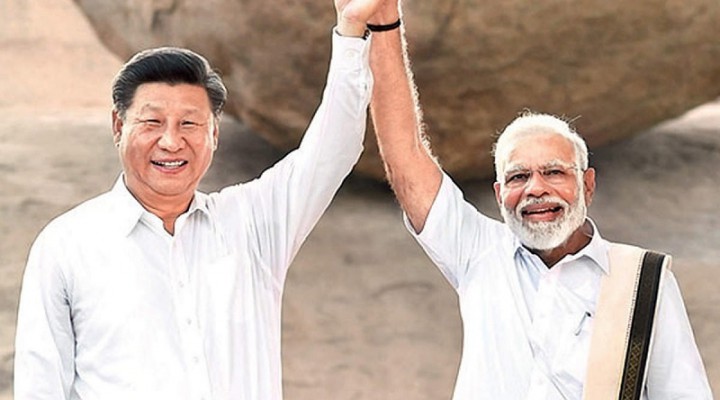China & India Agree That This Will Be The Asian Century

Exclusive- China and India are the world’s two largest developing countries, which therefore imbues them with significant influence in shaping the ongoing global systemic transition to multipolarity. Importantly, they’re also members of BRICS and the Shanghai Cooperation Organization (SCO), not to mention their trilateral cooperation with Russia through the Russia-India-China (RIC) format. These facts prove that they’re truly major countries whose worldviews seriously deserve to be considered by all observers.
Therein lies the relevance of Chinese and Indian representatives agreeing that this will be the Asian Century. Indian External Affairs Minister (EAM) Subrahmanyam Jaishankar spoke about last Thursday while in Thailand, during which time he stressed the need for his country and China to peacefully resolve their border dispute in order to bring about this mutually beneficial future. His remarks were then seconded by Chinese Foreign Ministry spokesman Wang Wenbin a day later.
Speaking at a press conference on Friday, Mr. Wenbin reaffirmed the importance of pragmatically managing their preexisting differences in order to more fully focus on the many more areas of commonality between them. He also praised EAM Jaishankar for channeling the spirit of former Chinese leader Deng Xiaoping, who predicted that “No genuine Asia-Pacific century or Asian century can come until China, India and other neighbouring countries are developed.”
Chinese-Indian ties have been gradually thawing since their recent low in summer 2020 following deadly clashes over the Galwan River Valley. This inevitable process was accelerated by the paradigm-changing consequences of the latest phase of the Ukrainian Conflict that began with the start of Russia’s special military operation in late February and the US-led West’s unprecedented sanctions. In order to continue conducting bilateral trade, some Indian companies began using the yuan in their deals with Russia.
This was a milestone event with respect to the gradual evolution of the global economic-financial system away from its hitherto Western-centricity and towards the Global South, in particular Asia. It also showed that India trusts that relations with China will remain stable, hence why its companies decided to use that neighboring country’s currency for conducting their trade with Russia. These observations add optimism to the future of their bilateral relations.
Having said that, there’s also no denying that their unresolved border dispute continues to remain an irritant in their ties. The issue is complex and each side has their own interpretation of every dimension related to this very sensitive issue, but they’re in agreement about the need to prevent third parties like the US from meddling in their affairs. India used to be considered by many to have moved uncomfortably close to that declining unipolar hegemon in recent years, but that’s no longer the case.
In fact, the nearly past half-year since the latest phase of the Ukrainian Conflict began has also seen major changes in the Indian-US Strategic Partnership after America aggressively pressured India to condemn and then sanction Russia. Its multipolar leadership proudly rebuffed all such pressure since it will never unilaterally concede on any issues that it regards as being in its objective national interests, let alone simply to please another country halfway across the world.
Nevertheless, the US refuses to stop its meddling campaign as most recently proven by State Department spokesman Ned Price’s provocative admission on Wednesday that it’s his country’s goal “to reorient [India’s] foreign policy away from Russia.” It should also therefore be taken for granted in the aftermath of US Speaker Nancy Pelosi’s reckless trip to Taiwan earlier this month that the US also intends to turn India against China too, though neither plot will ever succeed.
EAM Jaishankar’s latest remarks confirm his country’s intention to improve relations with China in order to facilitate the rise of the Asian Century that’ll immensely help all of their fellow developing countries across the Global South. Mr. Wenbin’s agreement with this vision proves that China wants that too for the same reason and has aspired for this over the past three decades. It’ll of course take time to resolve their sensitive border dispute, but it’s inevitable that talks will succeed and the Asian Century will arrive.
 TheAltWorld
TheAltWorld 
2 thoughts on “China & India Agree That This Will Be The Asian Century”